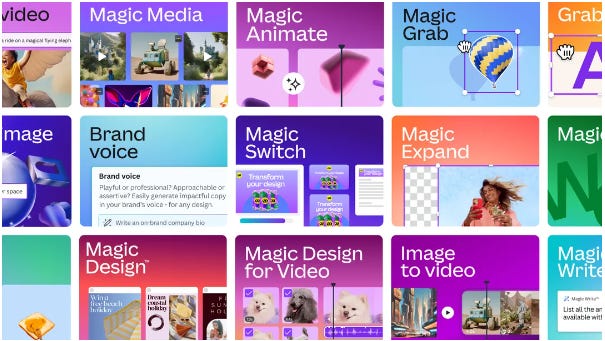The Future of AI: A Look at the Latest Trends and Developments
The Latest in Generative AI, AI Regulation, Social Applications, Chips, Assistants, and Preparing for an AI Future
The Future of AI: A Look at the Latest Trends and Developments
Artificial intelligence (AI) continues to advance at a rapid pace, with new innovations emerging across various industries and applications. Recent news highlights some of the latest trends and developments in AI, including advancements in generative AI, regulations around AI, using AI for social good, and more.
Generative AI Takes Center Stage
Generative AI, which can create new content like images, text, audio and video, is seeing significant progress. AI models can now generate high-quality images and human-like text, raising concerns about potential misuse. Lawmakers have proposed legislation like the No Fakes Act to safeguard people's likenesses from unauthorized AI replications. Despite reservations, brands like Ryan Reynold's Aviation Gin are experimenting with using generative AI to create ads. On the cybersecurity front, BlackBerry announced an AI assistant to aid with threat detection. Other companies are leveraging generative AI for creative workflows and to accelerate data-heavy workloads. As the technology advances, figuring out its appropriate use in society remains an ongoing challenge.
Chipmakers Advance AI Capabilities
Chipmakers like Nvidia are enhancing hardware to support advanced AI capabilities. Nvidia announced its plans to release upgraded AI chips capable of training large generative models faster. To meet surging AI demand, it has moved up the launch timeline for these chips to 2024. In cloud infrastructure, Nvidia struck a deal with Oracle to use its cloud computing for AI workloads. On the policy front, the U.S. is introducing new export controls to limit China's access to advanced AI chips, citing national security concerns. The rules aim to curb workarounds that allow restricted technology to reach China. While the U.S. and China compete for dominance in AI chips, the technology's advancement could enable breakthroughs across industries.
AI Assistants and Chatbots Proliferate
AI chatbots and virtual assistants are becoming more prevalent in everyday life. Google researchers improved an AI system to analyze thousands of words at a time, increasing speed and efficiency. SEO agency CreativeForce uses AI for e-commerce workflows, while agriculture technology company Hello Tractor employs AI chatbots to aid African farmers. In education, a UK private school appointed an AI chatbot as its head teacher. While still an experiment, these applications show how AI assistants can take on limited but useful roles. However, Meta's launch of AI chatbots on Instagram raised privacy concerns, as the company admitted using public Instagram posts to train its models without explicit consent. The appropriateness of using people's digital footprints to develop AI remains an important ethical question.
Using AI for Social Good
Nonprofits, academics and public agencies are exploring how AI can serve social welfare. In the UK, the government is funding projects where AI improves public services like firefighting, fashion sustainability and assisting small businesses. Researchers developed an AI system to detect supernovas, which could enable new scientific discoveries. Israel criticized an AI model that allegedly fabricated images of a dead Palestinian child. While AI holds promise for humanitarian aid, developers must ensure it meets ethical standards. Governance protocols will help direct AI systems away from misuse and towards benefiting traditionally underserved groups.
Regulating AI in the Public Interest
With advanced AI systems proliferating, governments are developing regulations and guidelines to manage risks. Japan released draft guidelines asking for measures to prevent over-reliance on AI. The EU is implementing new rules requiring high-risk AI applications to meet requirements around transparency, accuracy and human oversight. Some experts warn that without comprehensive governance, AI could cause disasters like automation-induced unemployment or financial system crashes. However, others believe rigid restrictions may hamper innovation that could benefit the public. Policymakers face the difficult task of maximizing AI's potential while restricting harms. Collaborative regulation that adapts over time may offer the flexibility needed for this fast-moving technology.
Preparing for an AI-Powered Future
As AI tools grow more sophisticated, they are poised to transform sectors like healthcare, transportation, finance and media. Already, AI powers diagnosis systems, content recommendation engines, supply chain optimization and more. Experts predict AI could generate 90% of online content by 2026. However, concerns remain about data privacy, algorithmic bias and AI possibly exceeding human control. Successfully realizing AI's benefits requires developing mechanisms for reliable oversight and control. AI safety research and ethics practices will be critical. Overall, AI brings immense opportunities coupled with risks. With care and responsibility, innovators can usher in AI breakthroughs that serve the common good.








